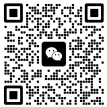1.论文vs报告书博士论文vs硕士论文
清楚辨明这四者的区别是写好硕士论文的基本条件。首要,许多论文不能经过的原因都是因为和报告书过于类似。我曾经也在第一次辩论中遇到过这种问题,所以一辩被亮了红灯。所谓报告书,是你确认主题后收拾前人的东西而成,格局比较松懈,并且论据引用得很详细,可是个人的研讨进程及假说认证的部分显着短缺。而论文的最主要特征是统一的格局,既依照序言、理论布景、研讨办法、假说认证、研讨结果、结论的次序进行(随专业不同略有不同)。论文的另一个显着的特征是条理要明晰,可是不能罗嗦,只需引申你所需求的学者的观念足矣,反之若同时引用了该学者证明的进程则就成了报告书。别的,报告书是收拾为主,可是论文是在收拾归纳的基础上参与你自己的观念作为补充,此为二者间的最底子不同。
2.学会变通
论文的写作进程中可以发现,简直所有人的初稿、纲要和毕竟的成稿都相差了十万八千里,在这里就要懂得该变则变的道理了。比如在论文的第1部分树立研讨问题的时分,你可以预备2至3套计划和教授谈论,毕竟再敲定一个作为毕竟的研讨问题。还有,自己的观念和教授相悖时,要首要说明自己的观念,然后和教授谈论,毕竟仍是根据教授的主意施行才为上策。
Faculty use of digital learning materials analysis
With regard to frequency of use of digital media in online assignments, 36.36% of respondents used digital media every week, while 18.18% used a form of digital media in online assignments every day; 4.55% responded that they used digital media a couple of times a month, 4.55% responded “less often,” and 36.36% did not respond to this question.
The data neither suggest nor negate the possibility that frequency of digital materials use may differ between male and female instructors or among levels of education. Further study should also consider whether types of programs affect frequency of use of digital media in online assignments.
In terms of the correlation between the ages of respondents and frequency of use, 75% of those who responded “every week” were in the 26–46 age bracket. Perhaps surprisingly - particularly given stereotypes of technology use by “millennials” (Pew, 2010), those who answered “every day” were aged between 56 and 65. Data on those who responded “a couple of times a month” or “less often” are limited, due to the small sample size, and therefore are not generalizable.
Amongst all respondents, use of video clips were the most popular form of media, with 59.09% using them, followed closely by PDF files and “Other” text documents, with 54.54% each. PowerPoint was also popular, with 50% of all respondents using the program; 36.36% used images, while audio clips, e-journals, and blogs were used by 31.81%. The least popular modes were applets, digital course packs, animations, and simulations.
Table 8: Responses indicating use of DLM in a recent assignment
Validity
Postal costs, missing data, and errors in transferred data to electronic format are eliminated (Gall et al., 2003). A password-protected tool prevented outsiders from accessing the survey site and help maintain user confidentiality.
Reliability
The researcher ensured that threats to reliability are avoided by trying to avoid biased or leading questions, technical terms that respondent wouldn’t understand without providing definitions, and words resulting in possible participant bias, and by including explicit instructions (Gall et al., 2003). The survey included definitions for words that may have had conflicting meanings for participants (Gall et al., 2003). Careful question construction, specific definitions, and pre-testing of the survey instrument enhanced the questions’ readability and understandability.
Limitations and Potential Impact
This study has limitations in terms of the population studied and the sample size gathered. Responses to the online survey were relatively low, giving a small sample to extrapolate from. This means that it is difficult to apply data in terms of demographic profile, such as the age and educational level of faculty who use digital learning materials to a larger population.





